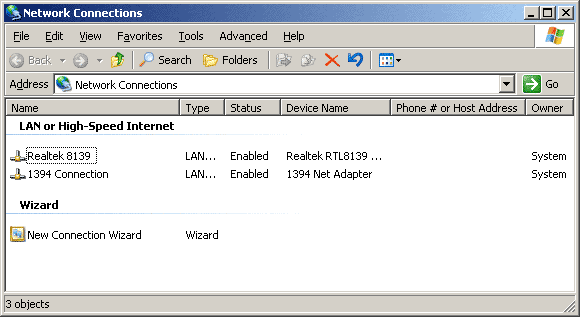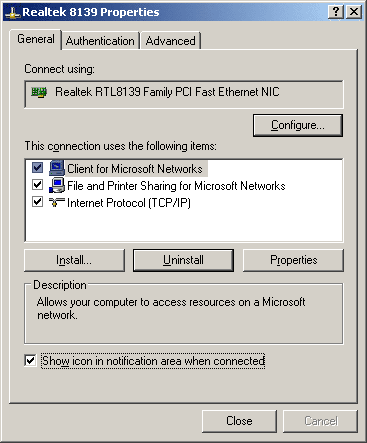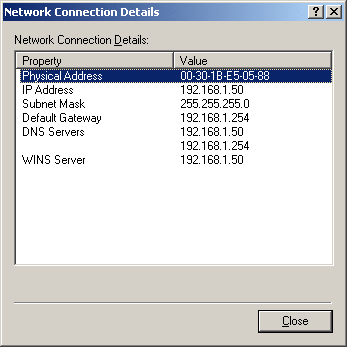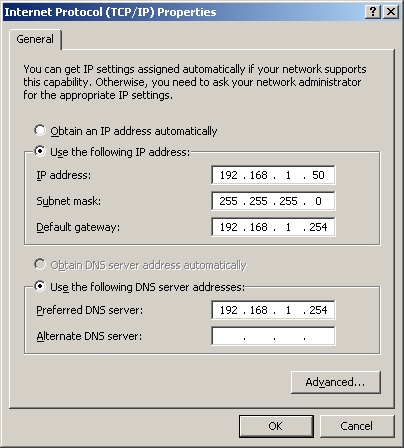Your Own Server Part 2: Windows Server 2003 Installation
Network Interface Configuration
Multiple network cards are often used in server systems, which is why you should change the standard names assigned by Windows and select meaningful names. In our example, only one onboard network chip is available so that we can quite easily name the connection after it.
Under [Properties], after making a right-click on the desired network connection, you can get into the configuration menu. Windows likes to install the QoS service (quality of service), or alternatively network load compensation. However, in small networks, this really doesn't make sense. You should, however, select the option at the bottom of the dialog box so that the connection icon is always visible in the taskbar.
A right-click on this connection icon gives you a detailed overview of all the relevant interface data, among other things.
Since we are installing a server system here, it should of course always be reachable at the correct IP address. This is less important in a local network because you can also reach the computer by its name since the DNS service resolves names. However, as soon as services are to be reachable from the Internet (VPN, terminal services, FTP...) an IP address must be given for the router.
We give the IP address of our DSL router here as a gateway, because the server itself should ultimately also be given access to the Internet. At this time, we also enter the router as the DNS server.
Get Tom's Hardware's best news and in-depth reviews, straight to your inbox.
Current page: Network Interface Configuration
Prev Page Internet Explorer Configuration Next Page Active Directory Implementation
Patrick Schmid was the editor-in-chief for Tom's Hardware from 2005 to 2006. He wrote numerous articles on a wide range of hardware topics, including storage, CPUs, and system builds.
-
I need to how to install SCCM ( System Center Configuration Manager) basic installation step by step guide with images or screenshots. This is help full to all IT staffesReply



